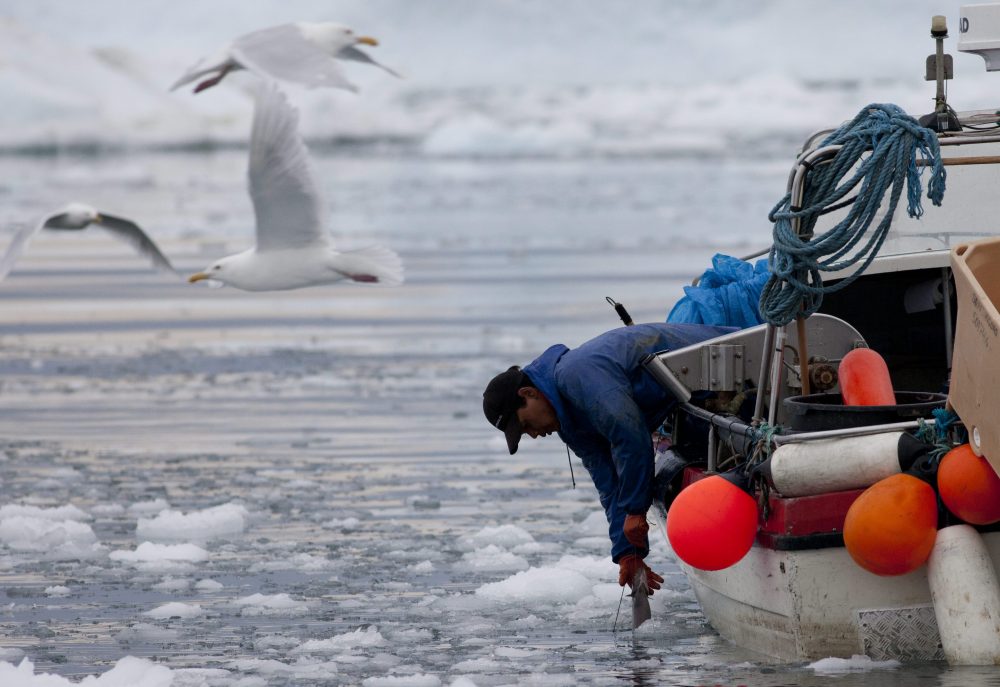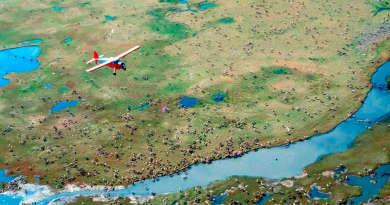Greenland and U.K. launch free trade agreement negotiations

Greenland and the U.K. formally launched free trade agreement negotiations on Thursday, with a bilateral meeting between Greenland’s Prime Minister Mute Bourup Egede and the British Embassy in Copenhagen’s Head of Political, Katherine Dark.
“A new free trade agreement between our countries will benefit our industry and be a springboard for developing our bilateral relations for the benefit of both countries,” Egede said in a news release.
“We’re very much looking forward to the negotiations, and to exploring the potential and opportunities that a direct relationship can lead to.”
Trade between the U.K. and Greenland was worth £10 million in 2020, the embassy said.
In addition, an estimated £49 million of coldwater shimp was shipped from Greenland to the U.K.

A major focus of the negotiations is reducing seafood tariffs.
“Cutting tariffs of up to 20% on Greenlandic specialities like prawns and cod fillets would benefit UK supermarkets and catering and hospitality businesses and ultimately consumers, by making room for a reduction in wholesale prices,” the British Embassy in Copenhagen said in a statement on their website.
Greenland lost its trade frame work with the U.K. when Greenland left the EU in 1985 in order to maintain its fishing rights. The Government of Greenland said reestablishing a new agreement is important for the growth of its fishing industry.
“The U.K. is Greenland’s most important market for cooked and peeled shrimp and also an important market for cod fillets, as well as other fish products,” the government said.
“The purpose of the free trade agreement is to reduce or eliminate U.K. customs duties on Greenlandic seafood products when the products are brought into the UK. With the UK as an important market for Greenland, it is important to restore good trade relations between our two countries.”
Deepening cooperation in Arctic
The U.K. said an eventual agreement will be win for British consumers and businesses.
“Cutting tariffs of up to 20% on Greenlandic specialties like prawns and cod fillets would benefit UK supermarkets and catering and hospitality businesses and ultimately consumers, by making room for a reduction in wholesale prices,” the government said.
Both Greenland and British officials said an eventual deal is important to deepen the relationship between the two nations in the North.
“The deal will provide a platform to deepen cooperation on ensuring regional stability in the Arctic as well as collaboration on UK priorities including science, technology, climate change and development,” the embassy said.
Write to Eilís Quinn at eilis.quinn@cbc.ca
Related stories from around the North:
Canada: Food insecurity a public health crisis that needs action, says Canadian Inuit org, Eye on the Arctic
Finland: Finland’s farming sector in crisis: report, Yle News
Norway: Alarm bells ringing for Atlantic salmon in northern Norway, The Independent Barents Observer
Sweden: 2018 drought took toll on Swedish farmers’ mental and fiscal health, research says, Radio Sweden
United States: This Alaskan spice shop brings new flavors to Indigenous dishes, Alaska Public Media



